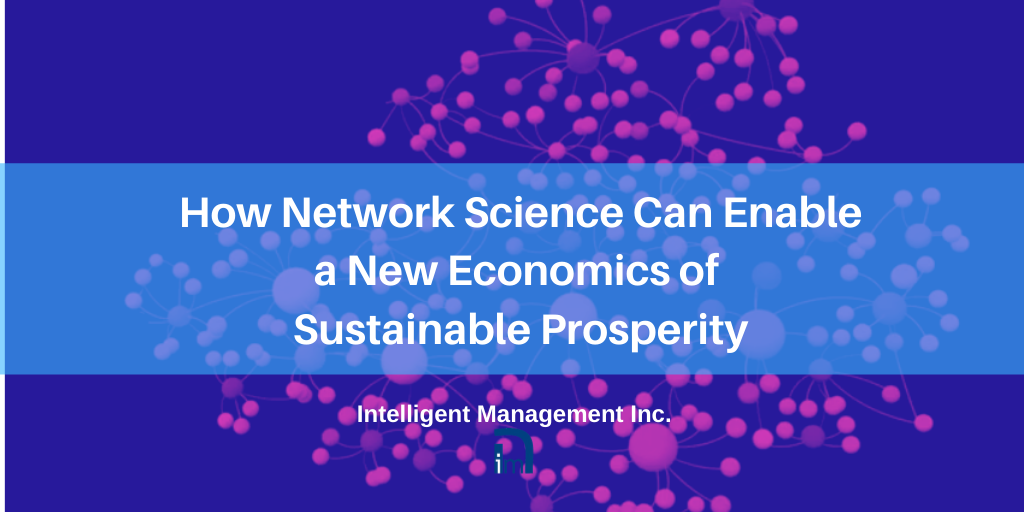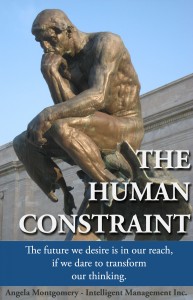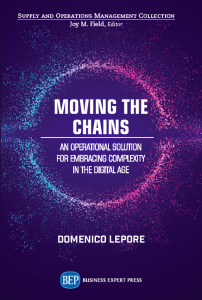
In our previous post, we suggested three steps towards a new economics for sustainable prosperity. In this post we look at two more fundamental steps in a shift towards a new economics and how network theory and science can assist us in finding new ways to operate practically as organizations within a new mindset for sustainable prosperity.
Just to recap from last time:
Step One: Start learning about how a mechanistic world view is out of date
Step Two: Start learning about how a systems view of the world is the most appropriate for our age of complexity
Step Three: Start learning about how collaboration beats competition
In this post, our Founder, Dr. Domenico Lepore, outlines how network science can contribute to building sustainable prosperity.
Step Four: Start learning about how Network Science can help decipher what happens around you
The new science of Network Theory is casting light on the nonlinear dynamics that take place in the highly interconnected world we now live in. (see Barabasi: ‘Linked: How Everything is Connected to Everything Else and What it Means for Business, Science and Everyday Life’.) Our fast changing socioeconomic environment is shaped by networks, whether we realize it or not. Social networks are one thing and they can be completely artificial, such as Facebook, in that they serve no real purpose other than providing their owners with tons of data they can then sell. But networks can be created for a purpose to achieve a common goal.
An organization can be seen as a network within networks. Rather than talking about a value chain instead of supply chain, today it makes more sense to talk about a value network. The role of leadership for complexity then becomes very clear; to guide how these networks of interdependencies occur so that the organizations within them can achieve their maximum potential.
At Intelligent Management we have taken this further to propose an operational solution for the problem of silos. It is a new organizational design that we call the ‘Network of Projects’. What we advocate is the transformation of the conventional silo-based hierarchy into an organization where there is full systemic optimization, made up of projects and processes, where the control mechanism is the management of buffers through statistical understanding. In this organizational design, company functions are seen exclusively as pools of competencies. These competencies are allocated to projects using a mechanism based on finite capacity.
In this systemic organization as a network of projects, leaders will be the enablers of meaningful and market-driven projects and will foster a new organizational climate, one of cooperation and win–win. We discuss this further in ‘Quality, Involvement, Flow: The Systemic Organization.’
Step Five: Start learning about sustainable network wealth
To fully embrace and thrive with this new, systemic organizational paradigm, we need a new cognitive lens, a new covenant with the concept of wealth creation and new tools to inspire and guide our people.
Far too many, and often prevailing, economic and financial models pursue an idea of value that is divorced from any concept of the general wealth and wellbeing of individuals and society. Such models are based on a systematically disproven “rational” behavior that is driven by the desire for individual profit. These models are rooted in the paradigm that if somebody wins somebody else has to lose. They call it “competition” and a gigantic and ineffective apparatus has been created to “ensure” fair competition.
The vision we propose is that of a new economics where companies takes very seriously their commitment to the future and see themselves as an ongoing generator of wealth for all their stakeholders and society at large. Accomplishing the organizational transformation required for all organizations to fulfill their role of sustainable wealth creation does call for a higher and better use of our intellect.
A new economics informed by a knowledge of systems and networks must be based on the founding assumption that no win can be based on somebody losing; that we are all interdependent and the wellbeing of individuals is critical for the wellbeing of society; that wealth must be created in order for it to be distributed and any form of imbalance will soon turn into a global loss; that individual success to the detriment of others cannot be sustained. This is what Network Theory clearly illustrates. A new economics must be founded on the assumption that individuals, organizations, large systems, networks and, ultimately, countries are vehicles for the creation and distribution of ideas, products, and services that help everyone to live better, more intelligently and harmoniously with our environment.
All the foundational work needed for management to become a new kind of science and, as such, a major contributor not just to wealth creation but also to wellbeing, already exists. Now is the time to apply that knowledge and shift from the paradigm of Maximizing Shareholder-Stakeholder Wealth to one of Maximizing Sustainable Network Wealth.
Contact: intelligentmanagement@sechel.ws
SCHEDULE AN INTRODUCTORY CALL WITH US ‘







Leave a Reply